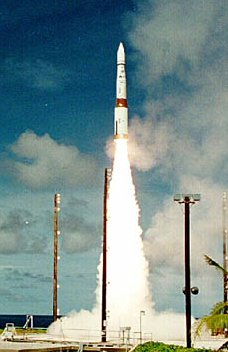Endless US wars mean endless sales for well-positioned US arms makers, but military officials today are detailing a growing effort within the Pentagon to fund not just the weapons they intend to actually buy, but also weapons they figure other people might want to buy in the future.
 The Pentagon’s Special Defense Acquisition Fund (SDAF) is meant for exactly that, with officials saying it allows them to “prime the pump” and placing advanced orders for weapons from arms makers “so we can stockpile things when we know there’s going to be an immediate rush or demand.”
The Pentagon’s Special Defense Acquisition Fund (SDAF) is meant for exactly that, with officials saying it allows them to “prime the pump” and placing advanced orders for weapons from arms makers “so we can stockpile things when we know there’s going to be an immediate rush or demand.”
In practice a lot of this money is being thrown at the ISIS war, with the expectation that all the nations that have gotten sucked into participating in the US-led coalition airstrikes against ISIS are going to need to buy a bunch of American bombs to drop on ISIS.
Since the US is dropping much of its own substantial collection of bombs on ISIS, this SDAF is being used to put in a whole bunch of extra orders for such bombs and related parts, with the expectation that customers will show up eventually.
While the Pentagon claims perfect knowledge of what other countries are going to want to buy from US arms makers years down the road, any SDAF orders that no one ends up wanting ultimately ends up paid for by the Pentagon, and thrown into the Pentagon’s stockpile, even if they are ordering things that Congress hasn’t authorized them to buy.
This ultimately means the SDAF can be used by the Pentagon to buy anything it wants, above and beyond the appropriations they are actually allowed. Though previously a very small fund, and subsequently a relatively minor deal, officials say last year’s $45 million spending has already doubled this year, and Congress has authorized them spending as much as $1 billion annually out of the fund, so long as the State Department signs off.
SDAF ends up problematic on two fronts because of this, since it will either be used by the Pentagon to get around budget limitations by ordering things no one else wants, or perhaps even more worryingly, the Pentagon may find itself trying to avoid getting hung with equipment it ordered by mistake by steering countries into whatever conflict they anticipated would lead to the eventual sales.


